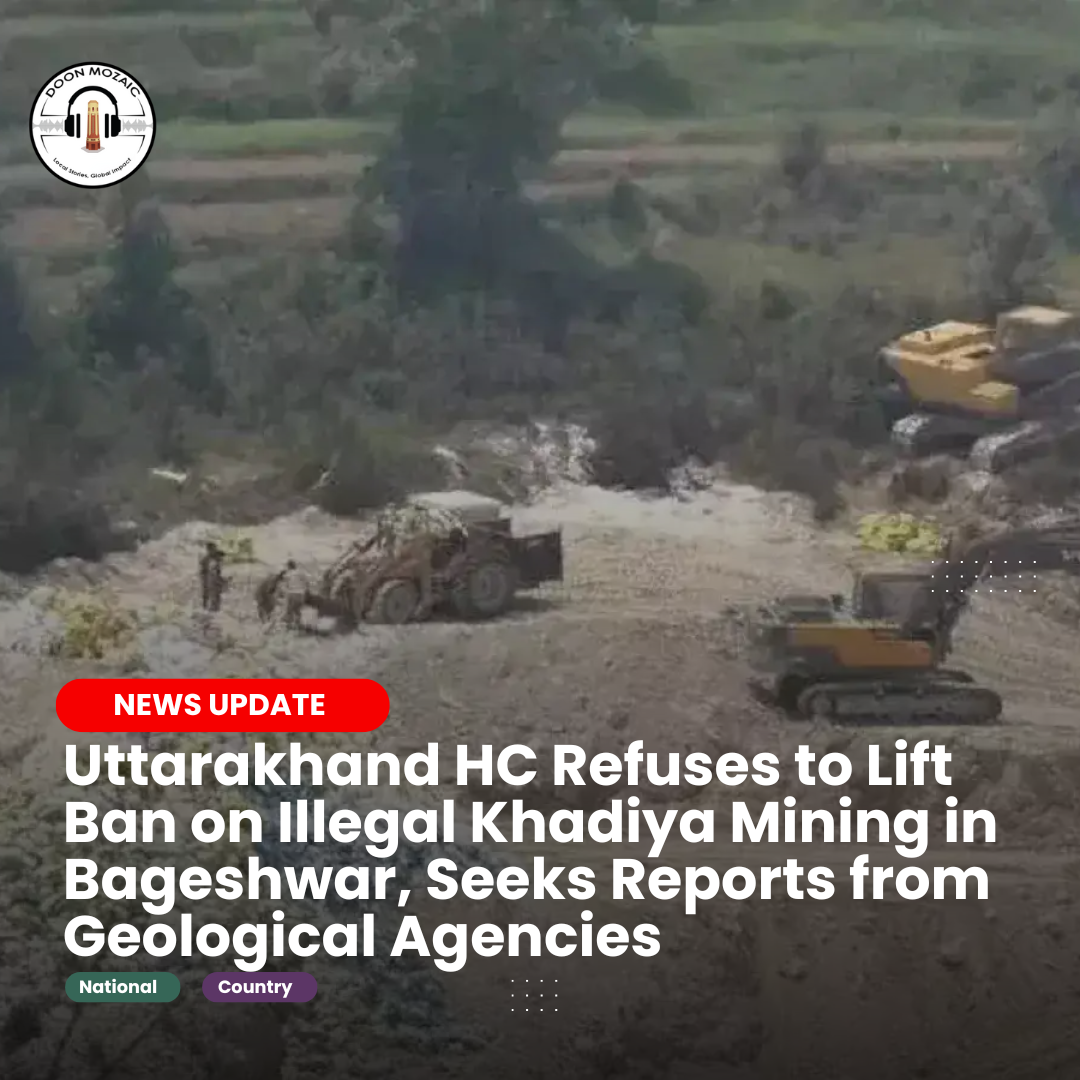In a significant step towards environmental protection and community welfare, the Uttarakhand High Court has declined to lift the ban on illegal Khadiya (soft stone) mining in Kanda Tehsil and other parts of Bageshwar district. The decision came during a hearing on a suo motu public interest litigation initiated by the court itself, following complaints from local villagers regarding environmental damage and livelihood destruction.
A division bench of Chief Justice Ramesh Chandra and Justice Alok Mehra ruled that the ban would remain in place. However, the court allowed filling of mining pits, under strict conditions. The process must be conducted under the supervision of the Central Ground Water Board, and geo-tagging of the filled pits is mandatory to ensure their condition remains traceable in the future.
The court also directed that the cost of filling the pits be recovered from the mining leaseholders, not the government. Furthermore, leftover minerals and materials found at the mining sites will be auctioned under the supervision of environmentalist Dr. Shekhar Pathak, with tenders to be issued accordingly.
Court Seeks Expert Reports
Taking a proactive stance, the bench ordered the Central Ground Water Board and Geological Survey of India to conduct an on-site inspection and submit a detailed report by Friday, June 13. The next hearing in the case has been scheduled for that date.
During the June 9 hearing, the state’s Chief Standing Counsel and representatives of the mining leaseholders argued that the pits left behind due to halted operations had filled with rainwater, causing cracks in surrounding hills and posing a threat of landslides during the monsoon. The court, acknowledging the potential risk, still stressed that public safety and ecological integrity must be prioritized.
Local Villagers’ Plea Sparks Action
The original suo motu action by the court was triggered by letters from local residents of Kanda Tehsil, who alleged that illegal mining activities had destroyed their farmlands, homes, and water pipelines. The villagers claimed that economically better-off families had relocated, leaving behind those who were poor and vulnerable. With livelihoods under threat, the villagers turned to the judiciary for intervention after repeated appeals to authorities went unanswered.
Income Tax Department Submits Sealed Records
In a related development, the Income Tax Department submitted sealed documents containing financial records of mining companies suspected of tax evasion. Allegations have also been made that several operators concealed their income and GST obligations, prompting the court to seek comprehensive financial disclosures.
Industry Appeals for Relief
Meanwhile, the mining leaseholders urged the court to lift the ban, citing impending lease expirations and growing debt burdens. They argued that the sealed soft stone stock should be released for sale to ease their financial distress, especially with banks sending frequent loan recovery notices.
However, the court remained firm in its stance, choosing to focus on public interest, environmental degradation, and regulatory compliance before considering any relief for the mining industry.
This development highlights a growing judicial focus on environmental accountability in Uttarakhand, where unregulated mining has often clashed with the ecological sensitivity of Himalayan regions. The court’s next steps—especially following the geological reports—are expected to set important precedents for sustainable land use policy in the state.
Discover more from The Doon Mozaic
Subscribe to get the latest posts sent to your email.



